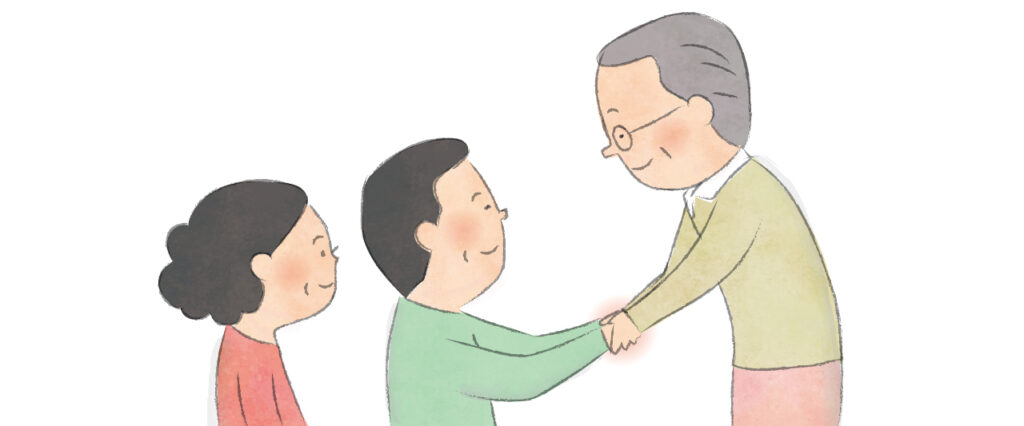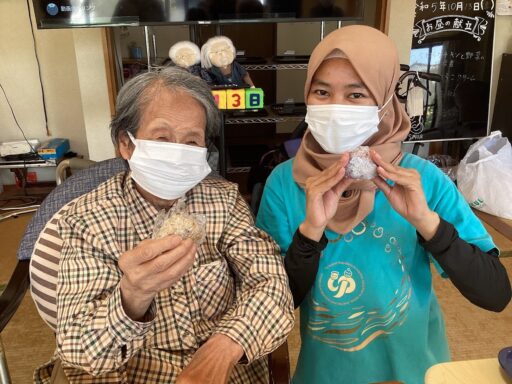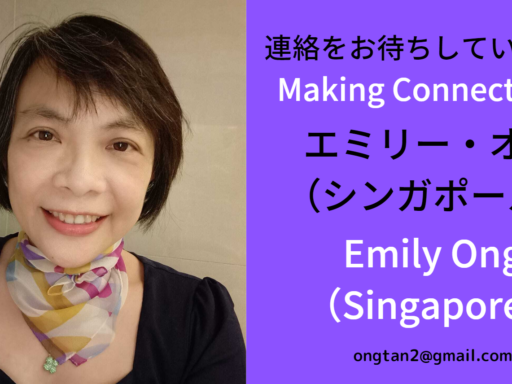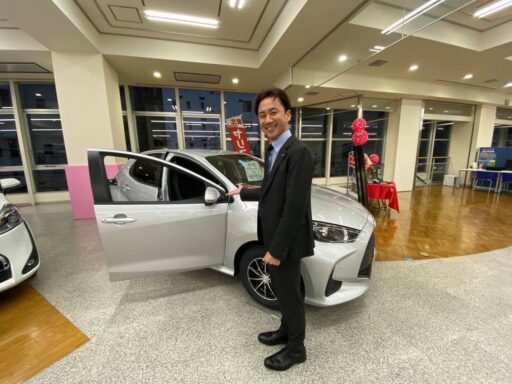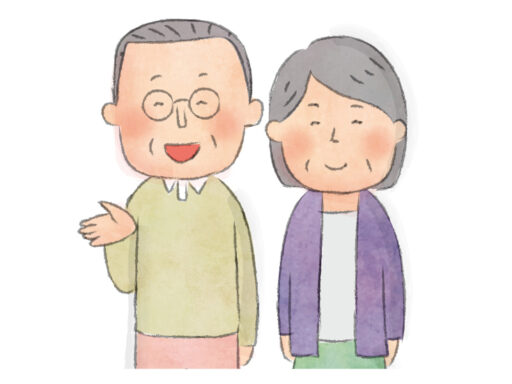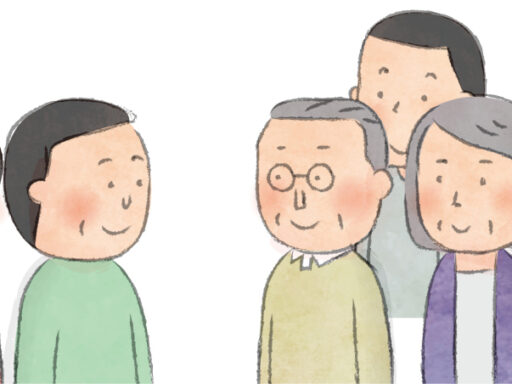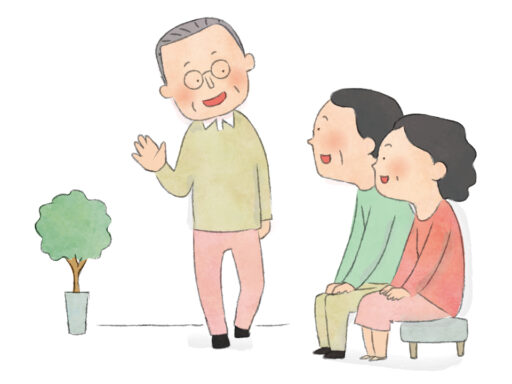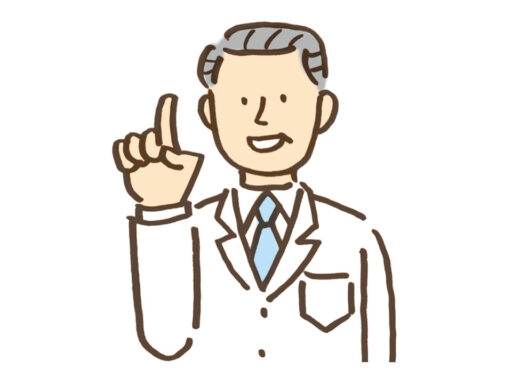When you are diagnosed with dementia.
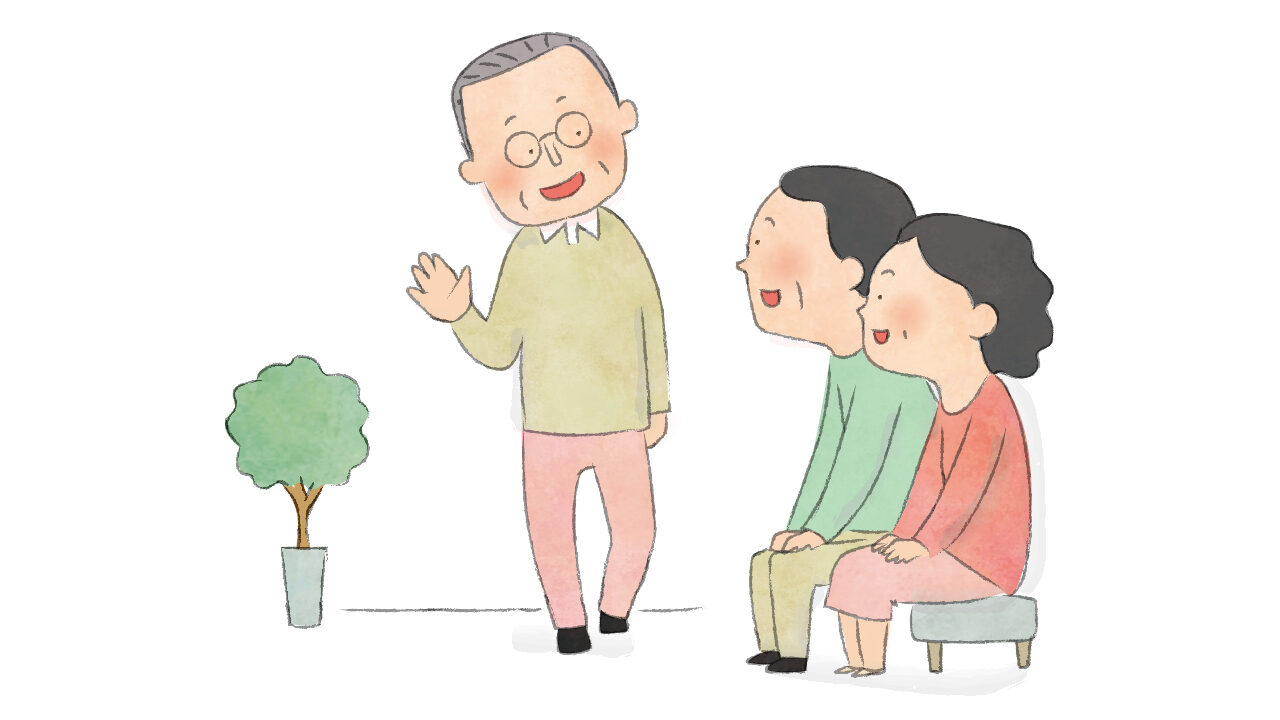
Hello, I’ve seen you here several times in this hospital. Are you two visiting the doctor? We are, too. It’s been 10 years since we first came to see the doctor, when my wife started to become forgetful. You are… Takashi. And your wife? Kazuko. Oh, Kazuko is 54, then that is the same age my wife was when she was diagnosed with dementia.
Of course, your doctor will explain a lot of things to you, but doctors only have limited time, so I thought I could help you in some degree. There is a condition called Mild Cognitive Impairment (MCI), which may or may not progress to dementia, but for now, let me talk about dementia and what you can do after being diagnosed with dementia.
[About the Condition]
My wife got vascular dementia, which is caused by “clogged” vessels in the brain and interferes with normal brain function. Approximately 10 to 15% of people with dementia are diagnosed with this type.
Kazuko’s got dementia of the Alzheimer’s type? Up until about 10 years ago, people believed that “younger onset Alzheimer’s type” dementia got worse more rapidly, but now they say there is no difference in changes in the brains of younger or older age people. Among aged people, approximately 50 to 70% of people with dementia are diagnosed with the Alzheimer’s type.
There are other types of dementia such as Lewy body disease (about 10%), which sometimes shows similar symptoms to Parkinson’s disease and may also include visual hallucinations and frontotemporal dementia (a small percentage), which causes shrinking of the frontal or temporal parts of the brain, or sometimes both. My friend got this type and his attitude and character changed. Another type is semantic dementia, which causes difficulty in language and comprehension.
[About Symptoms]
All dementias seem to have some similar symptoms, but they are different in each individual, so it is important to see Kazuko’s condition. Core symptoms show decline in judgement and memory. Behavioral and psychological symptoms of dementia (BPSD) can be anxiety, depression, hallucinations and delusions. For instance, my wife at one point accused me of stealing her things.
Not everyone with dementia shows BPSD. It seems that Kazuko is experiencing losses in memory and judgement, but not showing many behavioral and psychological symptoms, while my wife has little difficulty with memory, but shows strong behavioral and psychological symptoms. Each person with dementia has different symptoms, so if you are aware of the core symptoms as well as behavioral and psychological symptoms, you will understand better “what is happening” and be able to respond in more positive ways.
[About Medicine]
There is no medicine that completely “cures” dementia, however, there are medicines to delay the progress of symptoms. When those medicines work, your symptoms progress much slower, so it is important to use medicine that suits you.
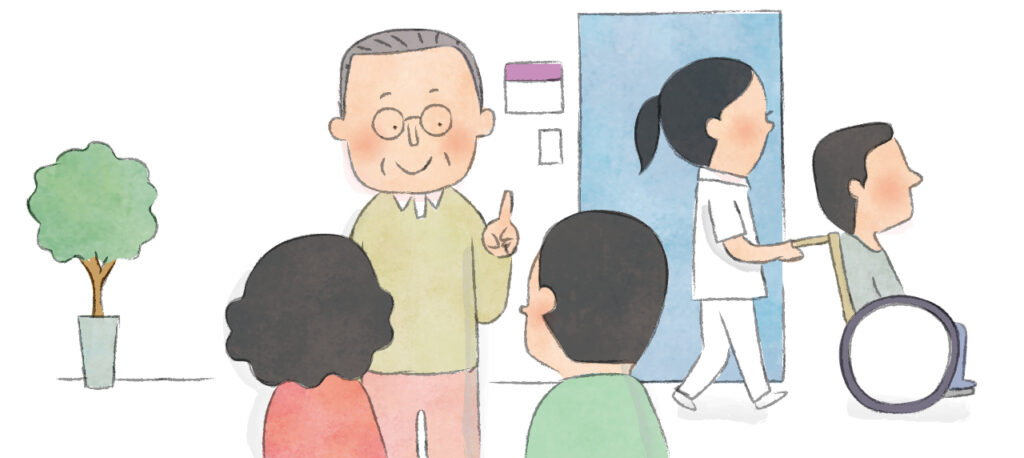
[Living with Dementia]
Some people say, “if you get dementia, that is the end of your life”. That is not true. It is “not the end of your life, but the beginning of a challenge”. Kazuko, you don’t have to feel hopeless just because you are diagnosed with dementia. Look at my wife. She has been peacefully spending the last 10 years with treatment and advice from our family doctor.
To prevent dementia from getting worse, we have tried to stabilize chronic lifestyle-related diseases. My wife has a blood pressure issue and if, as a result, she had repeated brain infarctions, her dementia would get worse. We have tried to prevent her diabetes and hyperlipemia from getting worse, which has also delayed the progress of her dementia. It is important to drink a lot of liquids unless you are required to restrict your fluid intake. If your food intake reduces, your liquid intake reduces, too. Exercises have also worked for her. When the blood flow in her muscles improves, her brain starts to become more active.
Takashi, please value what Kazuko is willing to do. Even if she is sick, let her do the tasks she feels she should take on. Emotional support can delay the progress of dementia. And if family members like you, Takashi, and I can provide care for them without worrying only by ourselves, we can slow down the progress of their dementia.
Our family doctor had a patient with Alzheimer’s, who enjoyed a good life for 20 years despite her symptoms. People tend to think negative things about dementia like, “I will become incapable of doing this and that”, but the doctor and this patient were always thinking positively about what she could do and found the things she could do.
You may feel very anxious and hopeless about your future, but remember, you are not alone in the dark. Takashi and Kazuko, I’ll see you again and we can support each other.
